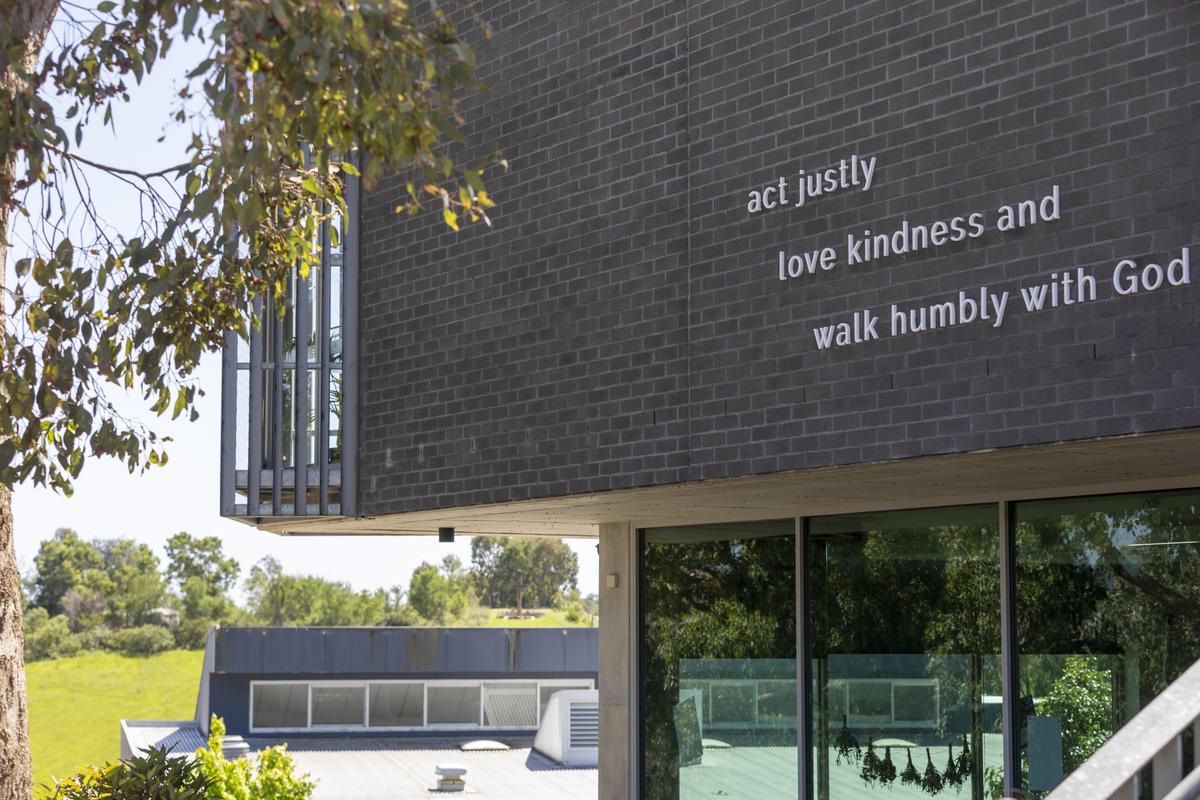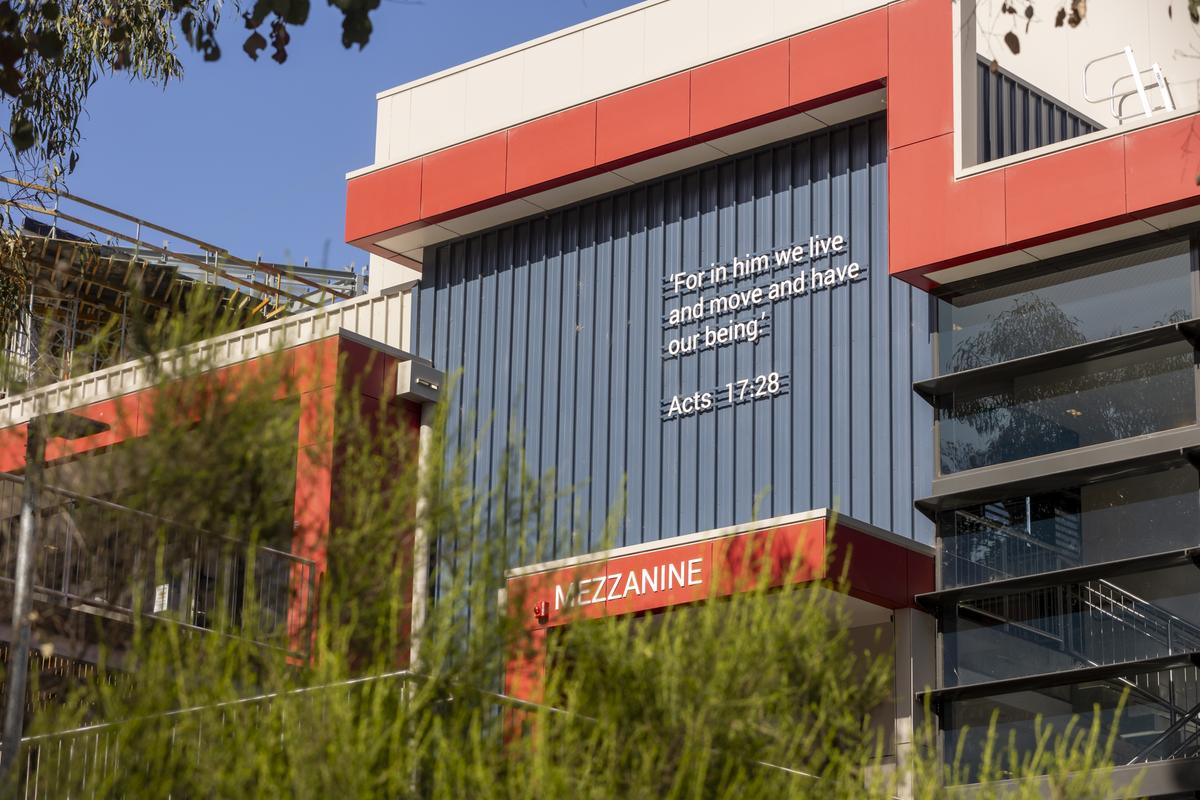Being Different and Out There ...
Tim Argall - Executive Principal

Being Different and Out There ...
Tim Argall - Executive Principal
Term 3 each year is our main term for finalising enrolments for the year after next. Thus I, in the company of a Board or Board committee member, will interview every new family wishing to enrol their children at the school for 2026. That's about 170 students – 90 for Prep, 60 for Year 7 entry, and the balance are senior secondary applicants.
Meeting these Christian families, hearing the testimony of the parents and the effect of personally knowing Jesus as Lord and Saviour in the midst of their family’s story, is so deeply encouraging. And heartrending, joyful, mind-blowing – you name the emotion, over the next eight weeks, we will probably experience it.
Yesterday, one of the families we met put their explanation of “why Donvale” as simply as this – “we want Christian education that is unapologetic, authentic and infuses everything that the school does”. Tick, tick, tick those boxes – that’s a checklist we are happy to be known for, an outward appearance we seek as our primary narrative.
What is Christian Education?
In recent weeks, research commissioned by our Board, and conducted by an organisational planning expert, asked this very question of Australian and international education leaders who are Christian, in the primary, secondary and tertiary sectors; the question was also put to parents of families and teachers and leaders within our community.
Let’s consider some of their responses, quoted anonymously so we concentrate on their content and heart, not on the authority of who spoke:
"The purpose of Christian education is to transform young people into the image of Christ so that they can effectively participate in the redemptive work of God within creation."
“Christian education is about forming individuals who are capable of critically engaging with the world through the lens of their faith.”
"Christian education is about character development and ensuring that the faith is interwoven in the daily practices and policies of the school."
“It’s the ultimate form of discipleship… preparing them to face the uncertainty of tomorrow. Character is a massive part of that puzzle… knowledge is equally as important, but can only take you so far… It’s the ability to understand the world around you and contextualise your own faith into that world.”
“When we say education that is Christian, I think we're trying to say there is something that is imbued with the character of Christ as the lens through which we view knowledge and ways of knowing about the world."
"Christian education is the ability for schools to be able to proclaim the gospel and ensure that the faith is interwoven in the daily practices and policies of the school.”
"For me it's like the marinade that the kids are in. It has to be in the curriculum, has to be on the walls, has to be at the meetings… to be all pervasive but not shouted at them. It's like St Francis of Assisi said, ‘Teach the gospel every day and if absolutely necessary use words’."
"It's those biblical ideas or that wisdom from God or a gospel kind of idea that comes through."
"How are we different to the school down the road? We don’t teach exactly the same way as them. It's purposeful, lifelong learning… If you're learning about history, it's understanding that we've been broken. And then there's reconciliation. Why? Because Jesus died on the cross and we were forgiven."
"That's the key to Christian education. That the gospel is what spurs us to want to be better teachers. We want to help the kids understand the gospel and understand their part in God's world and then grow in that truth and knowledge.”
“I think what should set us apart in Christian education, is both the spiritual side of your child's wellbeing and how we function as a school.”
“What about you?”
Jesus asked his disciples – “who do you say I am?” (for context and the full narrative, read Matthew 16:13-20)
Our newest building is open – students in Years 10-12 started this term with their lessons re-timetabled into the Senior Secondary Building. Five storeys, brilliantly built to take advantage of the natural slope in the area it is built on. Two storeys hug the hill, the top three rise above it. The design internally facilitates learning for our oldest students to best enable them to be critical and highly engaged thinkers, wrestling with rigour with the intellectual and spiritual challenges they face now as students and will face as emergent adults in the next decade.
Jesus’ question is on the side of this new building (continuing the practice of using scripture to flag our community posture for activities within our built spaces – a practice begun on Building A in 2017 and also seen on the Community Hub).




That is the key question for all our students, for all of us. Who do we say Jesus is? The answer will inform our comings in, our goings out, our activities, our conversations, all of our actions. It is pivotal to defining “Christian education” in our context.
Our Post-Christian context.
As you read the definitions offered by the education, parent and teaching leaders who have engaged with our recent research project, I hope it helps you to crystallise how you would define Christian education yourself.
That should be an ongoing and continual preoccupation for all of us who invest time, energy, work, play, thinking and creating in order that our Christian school is a beacon for Jesus.
It is not my plan or intention to share my own definition for Christian education at this stage, but I would encourage all in our community to think deeply about “what you might say it is”.
Perhaps these are elements to consider for that definition:
There’s lots to chew on this week!
Welcome back.
Shalom.